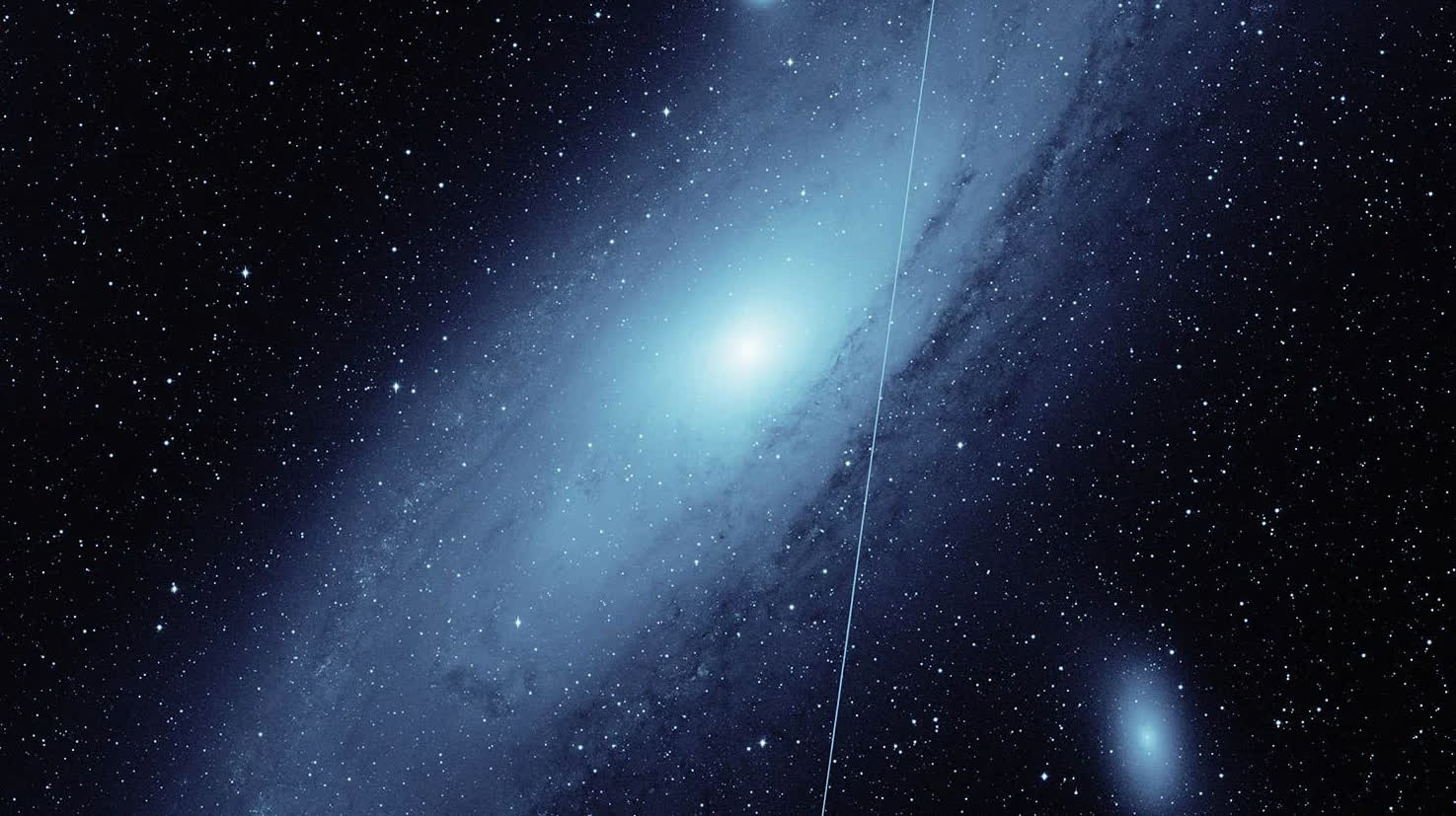In brief: SpaceX on Tuesday sent another batch of Starlink satellites to low Earth orbit, pushing the total number of units circling the globe to nearly 1,900. While that’s great news for SpaceX and Starlink customers, it has become a bit of a problem for astronomers here on Earth.

Ground-based observations often involve long exposures to capture light from distant targets. While small, Starlink’s satellites can still reflect enough sunlight to interfere with astronomers’ images, showing up as streaks of light in photos.
To quantify the satellites’ impact, a group of researchers analyzed observations collected between November 2019 and September 2021 from the Zwicky Transient Facility (ZTF) at the Palomar Observatory in California.
We found that twilight observations are particularly affected: a fraction of streaked images has increased from less than 0.5% in late 2019 to 18% in August 2021. Once SpaceX deploys 10,000 Starlinks, essentially all ZTF images taken during twilight may be affected. pic.twitter.com/5f8tKaSHlk
— Przemek Mróz (@przemroz) January 17, 2022
The team found 5,301 streaks from Starlink satellites. Twilight observations were impacted the most, with streaked image frequency increasing as more satellites were put into space. In late 2019, less than 0.5 percent of images were affected by the satellites. By August 2021, nearly one in five images featured unwanted satellite streaks.
Worse yet, the team estimates that by the time the constellation of Starlink satellites reaches 10,000 units, all ZTF images captured at night could be affected.
As it stands today, however, science operations from the ZTF aren’t strongly affected by the satellites. And really, it may not become a huge issue in the future, either.
SpaceX in 2020 started adding visors to help block sunlight from reaching the satellites, effectively reducing satellite brightness by a factor of five. Furthermore, one of the study’s co-authors said software could be developed to help mitigate the problem on multiple fronts. For example, astronomers could use software that tracks satellites’ location to avoid scheduling an observation when one might be in view.
The team’s full write-up can be found in the January 14 issue of The Astrophysical Journal Letters.